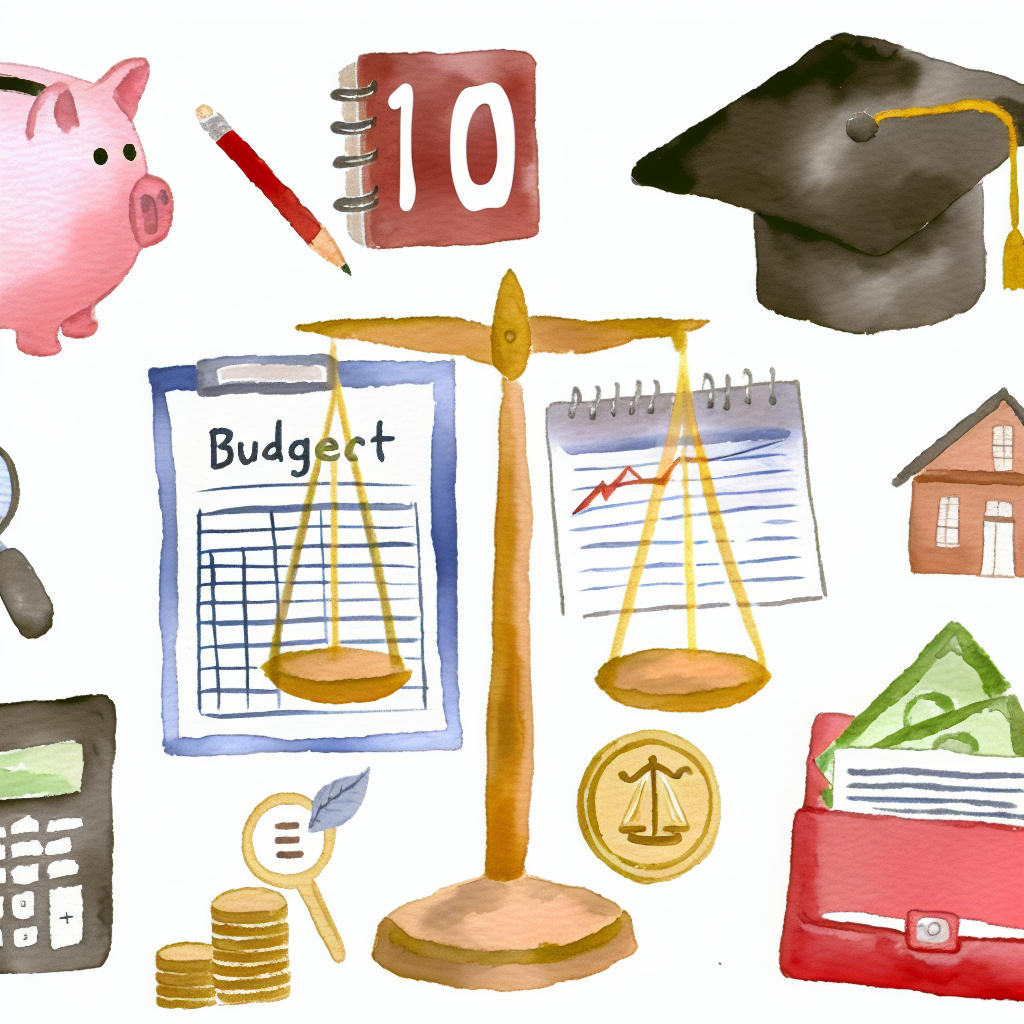Introduction to Debt Negotiation
Debt negotiation is a critical skill that can significantly impact your financial well-being. When managed effectively, it can mean the difference between ongoing financial turmoil and a stable, secure future. Effective debt negotiation involves dialogues between debtors and creditors to restructure or reduce outstanding payments. This process is particularly important for those who find themselves overwhelmed by debt and looking for ways to regain financial control.
One of the most paramount steps in this process is understanding the nature of debt negotiation itself. Whether it’s unpaid credit card bills, overdue mortgage payments, or medical bills, negotiating with creditors involves persuasion and strategic communication. Being prepared and knowing the right steps can make the negotiation process far less intimidating and much more successful.
Moreover, debt negotiation is not solely about reducing the amount you owe. It’s also about reconfiguring the payment terms to make them more manageable over time. Techniques such as lowering interest rates, extending payment periods, and even principal forgiveness can be part of a successful negotiation. Navigating these options adeptly can provide much-needed relief and a pathway to repay your debts more comfortably.
Ultimately, mastering the art of debt negotiation can result in lower repayment amounts, reduced interest rates, and a consolidated financial strategy that helps you stay financially healthy. The following sections will guide you through this process comprehensively—from assessing your financial situation to finalizing and documenting agreements.
Assessing Your Financial Situation
The first step in any successful debt negotiation is to have a clear and honest assessment of your financial situation. Before reaching out to creditors, gather all the necessary financial documents, including bank statements, pay stubs, and outstanding bills. This will give you a comprehensive view of your income, expenses, and debt obligations.
Evaluating your financial situation involves calculating your total debt and comparing it against your income and expenses. Knowing your debt-to-income ratio can give you an idea of how much debt you can realistically manage to pay off each month. Create a detailed budget that outlines your monthly income and necessary expenses, such as rent, groceries, utilities, and transportation.
Here’s a simple way to calculate your debt-to-income ratio:
| Income | Monthly Amount ($) |
|---|---|
| Salary | 4,000 |
| Other Income | 600 |
| Total Income | 4,600 |
| Expenses | Monthly Amount ($) |
|---|---|
| Housing | 1,200 |
| Utilities | 300 |
| Groceries | 500 |
| Transportation | 200 |
| Total Expenses | 2,200 |
| Debt Payments | Monthly Amount ($) |
|---|---|
| Credit Card 1 | 200 |
| Credit Card 2 | 150 |
| Loan | 300 |
| Total Debt Payments | 650 |
Your debt-to-income ratio can be calculated as follows: [ \text{Debt Payments} / \text{Total Income} = 650 / 4600 \approx 0.141 \text{ or } 14.1% ]
Once you have a clear understanding of your financial situation, you can determine how much you can realistically afford to offer in negotiations. This clarity can make the negotiation process more structured and straightforward.
Understanding Creditor Perspectives
Understanding the perspective of your creditors is essential in negotiating effectively. Creditors are primarily concerned with recovering the money they have lent. However, they are also aware of the risks of non-repayment or defaults. By showing that you are serious about repaying your debt and that you have a plan in place, you can present yourself as a cooperative and proactive debtor.
Creditors often categorize debtors into different risk profiles, evaluating their willingness and ability to repay the debt. They look at factors such as payment history, current financial status, and overall creditworthiness. By understanding this evaluation process, you can tailor your negotiation approach to meet the creditor’s concerns and priorities.
It’s also important to note that creditors may have internal policies and guidelines on how to handle debt negotiations. Some may be more flexible, while others may have stricter guidelines. Being aware of these policies can help you gauge the likelihood of reaching a favorable agreement.
When preparing for negotiation, consider that creditors are more likely to agree to terms that ensure they recover some of the money owed, rather than risk getting nothing if you default. Highlighting your sincere intention to repay, along with presenting a well-thought-out repayment plan, can make creditors more receptive to your proposal.
Preparing for Negotiation
Effective preparation is pivotal for successful debt negotiation. Start by documenting your financial situation, including your total debt, income, expenses, and any assets you may have. Having these details readily available will allow you to present a clear and concise picture to your creditors, avoiding any delays or misunderstandings.
Ensuring you have a detailed and feasible repayment plan is also critical. Create multiple scenarios that outline different terms and conditions you are willing to accept. By having a versatile approach, you increase your chances of reaching an agreement that works for both you and your creditor. Make sure to include contingency plans for unexpected financial changes.
Furthermore, knowing the specifics of each debt you owe, including interest rates and payment due dates, can give you the leverage needed to negotiate more favorable terms. Understanding the nuances of each debt allows you to argue more compellingly for reduced interest rates or extended payment periods.
Lastly, practice your negotiation pitch. Role-playing with a friend or family member can help you anticipate objections and questions your creditor may raise. This preparation will boost your confidence and reduce any anxiety you might have about the negotiation process.
Key Strategies for Negotiating Debt
Several key strategies can enhance the effectiveness of your debt negotiations. One of the most effective strategies is to negotiate for a lower interest rate. Lower interest rates reduce the overall cost of the loan, making it easier to pay off the principal amount over time.
Another strategy is to request a longer repayment term. Extending the payment timeline can reduce the amount you need to pay each month, making it more manageable within your budget. Be aware, however, that a longer term may also mean you’ll pay more in interest over the life of the loan.
Debt forgiveness or settlement is another viable option, especially if you are in a financially dire situation. In this case, you offer to pay a lump sum that is less than the total amount owed. Some creditors may accept this offer, particularly if they believe it’s unlikely they’ll recover the full amount otherwise.
Debt Negotiation Strategies Table
| Strategy | Description |
|---|---|
| Lower Interest Rates | Requesting a reduction in interest rates to lower the overall cost of the loan. |
| Extended Repayment Term | Negotiating for a longer period to repay the debt, which results in lower monthly payments. |
| Debt Forgiveness/Settlement | Offering a lump sum payment that’s less than the total due to settle the debt. Creditors may accept this to avoid the risk of receiving no payment at all. |
| Freeze on Additional Fees | Asking creditors to halt additional fees and penalties to prevent the debt from growing further. |
| Hardship Plan | Proposing a customized repayment plan based on your financial hardship to make payments more manageable. |
Utilizing a combination of these strategies can maximize your chances of successfully negotiating with creditors. Remember, flexibility and a strategic approach are crucial in reaching an agreement that benefits both parties.
Negotiation Communication Techniques
Effective communication is fundamental to any negotiation. Being clear, concise, and respectful can make a significant difference in how your proposal is received. Start each negotiation by clearly stating your current financial predicament and your commitment to resolving the debt issue.
Using active listening techniques can also be highly beneficial. Listen carefully to the creditor’s responses and concerns, and then articulate your understanding of their position. This shows that you are not just demanding concessions but are interested in finding a mutually beneficial solution.
Another important technique is to remain calm and composed, even if the negotiation becomes challenging. Avoid becoming defensive or confrontational, as this can derail the negotiation process. Maintaining a professional demeanor throughout the conversation will help foster a more productive dialogue.
Additionally, using open-ended questions can encourage creditors to provide more information about their policies and limitations. Questions like, “What options can you offer to help me manage my debt?” or “How can we adjust my repayment plan to make it more affordable for me?” can open up avenues for discussion that might not have been immediately apparent.
Offering Settlement Proposals
Presenting a well-structured settlement proposal is a critical aspect of debt negotiation. A settlement proposal typically involves offering a lump-sum payment that is less than the total debt owed, in exchange for the creditor considering the debt settled.
Before making a settlement offer, consider how much you can realistically afford to pay. It’s advisable to start with a lower offer, as creditors often counter with a higher amount. For example, if you owe $10,000, you might start by offering 30-40% of that amount.
Ensure your proposal is detailed and includes:
- The total amount you are offering as settlement
- The date by which you can make the payment
- A clear statement that the offer is for full settlement of the debt
Sample Settlement Proposal
| Current Debt | Proposal |
|---|---|
| Total Debt Owed | $10,000 |
| Offered Settlement | $3,500 |
| Payment Date | Upon acceptance of offer |
| Settlement Terms | Full and final settlement |
After presenting your offer, be prepared for some negotiation. Creditors may counteroffer, so it’s crucial to remain flexible and willing to adjust your proposal within your financial limits.
Legal and Financial Considerations
Engaging in debt negotiation involves several legal and financial factors that you should consider carefully. One major consideration is the tax implications of any debt forgiven. According to U.S. tax law, forgiven debt amounts may be considered taxable income, which can affect your tax liability.
It is also important to understand the terms and conditions of any new agreement you reach. Ensure that all terms are clearly documented in writing to avoid misunderstandings or disputes later. If possible, consult with a legal advisor or financial consultant who can review the terms and provide guidance.
Here are some key legal and financial considerations:
| Consideration | Description |
|---|---|
| Tax Implications | Forgiven debt may be considered taxable income. Consult with a tax advisor. |
| Clear Documentation | Ensure all terms and conditions are documented in writing to avoid future disputes. |
| Credit Score Impact | Understand how the new agreement will affect your credit score. |
| Legal Consultation | Seek legal advice to understand the implications of the new agreement and ensure it complies with relevant laws. |
Considering these aspects will ensure you are fully aware of the consequences of the negotiation agreement.
Handling Rejected Negotiations
Not every negotiation attempt will be successful. If your proposal is rejected, it’s essential to stay calm and professional. Use the feedback you receive from creditors to adjust your strategy and try again.
Rejection doesn’t mean the end of the road. Re-evaluate your financial situation and consider if there are other areas where you can make adjustments. You might need to offer a higher settlement amount or revise your repayment plan.
Here’s what you can do if a proposal is rejected:
- Reassess Your Offer: Determine if you can provide a more attractive offer without straining your finances.
- Seek Professional Help: Sometimes, involving a debt negotiation expert or financial advisor can add credibility to your case.
- Explore Alternatives: Consider other debt relief options such as credit counseling, debt consolidation, or bankruptcy if negotiations fail consistently.
By approaching rejections constructively, you can find ways to refine your offers and eventually reach an acceptable agreement.
Finalizing and Documenting Agreements
Once you reach an agreement with your creditor, ensure that all terms are clearly documented. A written agreement provides legal protection and serves as a reference for future payments.
Your written agreement should include:
- Total amount agreed upon
- Payment schedule and due dates
- Interest rates (if applicable)
- Any fees waived or penalty adjustments
Sample Agreement Summary
| Agreement Term | Details |
|---|---|
| Total Settlement Amount | $3,500 |
| Payment Schedule | Monthly payments of $175 over 20 months |
| Interest Rate Adjustment | Fixed at 5% for remaining balance |
| Waived Fees | All late fees waived |
| Effective Date | April 1, 2023 |
Ensure both parties sign the document, and keep copies for your records. Transparency in documentation prevents future disputes and solidifies your commitment to the agreement.
Maintaining Financial Health Post-Negotiation
Successfully negotiating with creditors is a significant milestone, but maintaining financial health afterward is crucial. Develop a comprehensive financial plan that focuses on budgeting, saving, and responsible spending.
- Budgeting: Create a realistic budget that accounts for all your expenses and stick to it. This will help you avoid falling back into debt.
- Emergency Fund: Build an emergency fund to cover unexpected expenses, which can prevent financial setbacks.
- Credit Monitoring: Regularly monitor your credit reports to ensure your credit score improves and remains healthy.
Post-Negotiation Financial Health Checklist
| Task | Action |
|---|---|
| Budgeting | Create and adhere to a monthly budget |
| Emergency Fund | Save at least 3-6 months of expenses |
| Credit Monitoring | Check credit reports annually |
| Financial Goals | Set and track short-term and long-term financial goals |
By adhering to these steps, you can ensure sustained financial stability and improved creditworthiness.
Conclusion
Debt negotiation is a powerful tool for those struggling with financial obligations. By understanding the process and preparing meticulously, you can negotiate terms that align with your financial capabilities. Assessing your financial situation comprehensively allows you to present credible offers to creditors.
Understanding the perspective of your creditors helps in framing your negotiation in a manner that addresses their concerns. Effective communication and well-thought-out negotiation strategies can significantly enhance the likelihood of reaching a favorable agreement. Additionally, knowing the legal and financial implications ensures that you make informed decisions.
Handling rejections constructively and finalizing agreements transparently further solidify the negotiation process. Post-negotiation, maintaining financial health through budgeting, saving, and credit monitoring is critical to sustaining the benefits achieved through negotiation.
Recap
- Assess Financial Status: Understand your financial situation before negotiating.
- Understand Creditor Perspective: Know what creditors are looking for.
- Prepare Thoroughly: Have a documented financial plan ready.
- Use Key Strategies: Employ techniques like interest reduction and settlement offers.
- Communicate Effectively: Practice clear and respectful negotiation communication.
- Offer Structured Proposals: Present feasible settlement offers.
- Handle Rejections Positively: Adjust and re-strategize if initially rejected.
- Document Agreements: Ensure all negotiation terms are documented.
- Post-Negotiation Planning: Maintain financial health post-agreement.
FAQ
Q1: What is debt negotiation? A1: Debt negotiation involves discussing and restructuring the terms of your debt with creditors to make payments more manageable.
Q2: Can all types of debt be negotiated? A2: Most unsecured debts, like credit card debt and medical bills, can be negotiated. Secured debts are generally more challenging to negotiate.
Q3: Will debt negotiation affect my credit score? A3: Yes, debt negotiation may initially lower your credit score, but effective repayment can improve it over time.
Q4: Should I hire a debt negotiation expert? A4: While not always necessary, a debt negotiation expert can provide guidance and negotiate on your behalf if you’re unsure of the process.
Q5: What should I do if my settlement proposal is rejected? A5: Reassess your financial capacity, modify your offer, and consider getting professional advice for a more compelling proposal.
Q6: Are forgiven debts taxable? A6: Yes, forgiven debts can be considered taxable income, so consult with a tax advisor to understand the implications.
Q7: How do I document a debt negotiation agreement? A7: Ensure all terms are written clearly, including amounts, payment schedules, waived fees, and get it signed by both parties.
Q8: What steps should I take post-negotiation to stay financially healthy? A8: Create a strict budget, build an emergency fund, and regularly monitor your credit report to maintain your financial health.
References
- Federal Trade Commission. (n.d.). Coping with Debt. Retrieved from https://www.consumer.ftc.gov/articles/0150-coping-debt
- Internal Revenue Service. (n.d.). Canceled Debt – Is It Taxable or Not? Retrieved from https://www.irs.gov/newsroom/canceled-debt-is-it-taxable-or-not
- National Foundation for Credit Counseling. (n.d.). Debt Reduction Services. Retrieved from https://www.nfcc.org/services/debt-solutions/debt-reduction/











